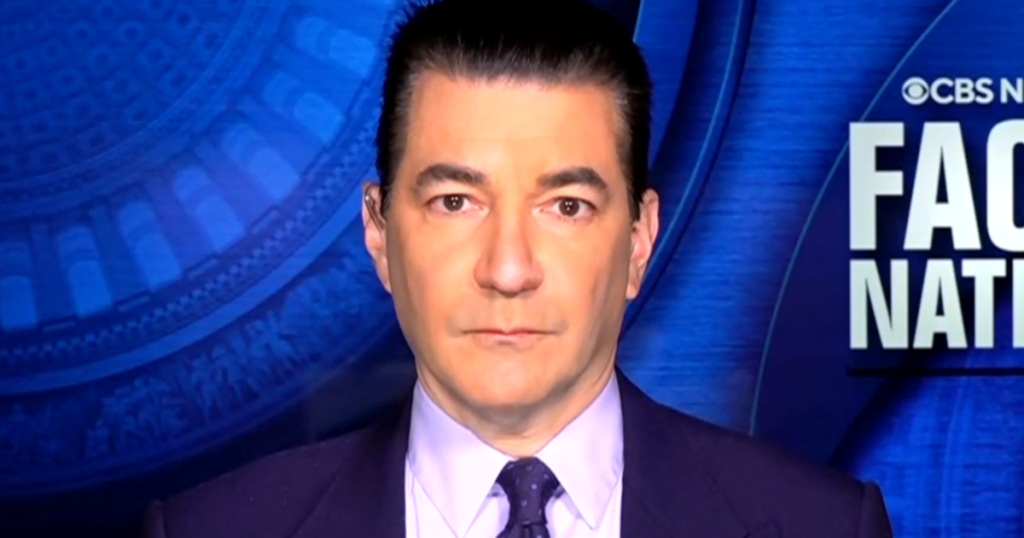In a recent interview regarding the ongoing measles outbreak in the United States, former FDA Commissioner Dr. Scott Gottlieb provided crucial insights about vaccination and public health responses. As the number of measles cases rises in 18 states, predominantly in Texas and New Mexico, local health officials are urging parents to prioritize vaccinations for their children and consider their options for protective measures. The conversation also included discussions of alternative treatments suggested by certain officials and the importance of swift leadership appointments at the CDC amid these public health concerns.
| Article Subheadings |
|---|
| 1) Overview of the Measles Outbreak |
| 2) Vaccination Recommendations for Children and Adults |
| 3) Alternative Treatments Discussed |
| 4) The Need for CDC Leadership |
| 5) Proposed Cuts Impacting Health Research |
Overview of the Measles Outbreak
As of March 2025, the United States is facing a troubling rise in measles cases, with reports of infections surfacing in 18 states. Among these, Texas and New Mexico have been particularly affected, leading health officials to express grave concerns about public safety. Dr. Scott Gottlieb highlighted the alarming potential of this outbreak, suggesting that it could become the largest the country has seen in over two decades. This resurgence of measles raises critical questions about vaccination rates and public health preparedness, particularly regarding the immunization of children, who are especially vulnerable to the disease.
Vaccination Recommendations for Children and Adults
Vaccination plays a pivotal role in protecting against measles, and parents are urged to ensure their children receive the necessary immunizations. Dr. Gottlieb explained that children typically receive their first dose of the measles vaccine at approximately one year of age, followed by a second dose before they start school around age four. However, he also pointed out a vulnerable period between six and twelve months of age when infants may not be effectively protected. In light of the current outbreak, there are now recommendations for administering a first dose to infants within this age range to help provide them with earlier immunity.
Adults, especially those who were vaccinated in childhood, generally maintain immunity due to the effectiveness of the measles vaccine. The Centers for Disease Control and Prevention (CDC) does not recommend booster shots for those who have already received two doses. However, health care workers and those in close contact with susceptible populations may be advised to check their immunity levels and consider additional doses as needed.
Alternative Treatments Discussed
The discussion shifted when Secretary Robert F. Kennedy, Jr. mentioned alternative treatments which purportedly showed positive effects against measles. These included treatments like Budesonide and Clarithromycin, along with supportive measures like cod liver oil containing vitamins A and D. While these options may have merit in other medical contexts, Dr. Gottlieb firmly countered that such alternatives should not replace vaccination. He emphasized that the primary means of preventing measles and its complications is through vaccination rather than relying on unverified treatments, which could lead to dangerous complacency among parents concerned about their children’s health.
The Need for CDC Leadership
Given the rising number of measles cases, having effective leadership within the CDC is crucial. Dr. Gottlieb expressed concern regarding the current vacancy of a CDC director, following the withdrawal of the administration’s nominee due to lack of sufficient support. He stressed the urgency of appointing a leader who can proficiently guide the CDC’s response to the measles outbreak and oversee critical public health actions. With the country potentially facing a record number of measles cases this year, timely and decisive leadership is essential to coordinate vaccination efforts and ensure public health safety.
Proposed Cuts Impacting Health Research
The conversation also touched upon the anticipated impacts of proposed federal budget cuts affecting health research institutions, such as Johns Hopkins University and Columbia University. Reports indicate that these institutions may face significant reductions in funding due to broader budgetary constraints. Dr. Gottlieb raised alarms about the implications of these cuts on critical research programs, particularly those that contribute to public health and patient care. Such cuts could hinder ongoing medical studies, limit new grants, and ultimately disrupt the continuity of care essential for patients relying on innovative treatments.
| No. | Key Points |
|---|---|
| 1 | Measles cases are rising in 18 states, with Texas and New Mexico most affected. |
| 2 | Vaccination is crucial for preventing measles, especially in children. |
| 3 | Alternative treatments suggested may not replace the necessity of vaccination. |
| 4 | The importance of appointing a new CDC director is highlighted as urgent amid the outbreak. |
| 5 | Proposed federal budget cuts could jeopardize health research programs. |
Summary
As the U.S. grapples with a significant increase in measles cases, former FDA commissioner Dr. Scott Gottlieb has underscored the importance of vaccinations for children and the urgent need for effective public health leadership. Despite conversations around alternative treatments, vaccination remains the most effective means of prevention against measles. With proposed federal budget cuts threatening critical health research, the situation calls for immediate action to protect public health and ensure the continuation of vital medical research.
Frequently Asked Questions
Question: What is measles and why is it a concern?
Measles is a highly contagious viral infection that can lead to severe health complications, particularly in young children. The recent outbreak in several states has raised alarms regarding vaccination rates and public health preparedness.
Question: How can I ensure my child is protected from measles?
To ensure protection, it is crucial to follow the recommended vaccination schedule, which typically includes a first dose at age one and a second dose before starting school. Additionally, early vaccination may be advised for infants between six and twelve months in outbreak situations.
Question: Are there any effective treatments for measles after infection?
Currently, there are no effective treatments for measles once infection occurs. Vaccination remains the only reliable way to prevent measles and its serious complications.


